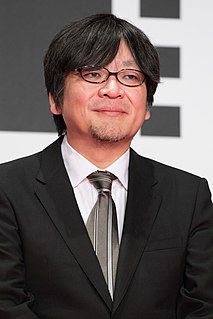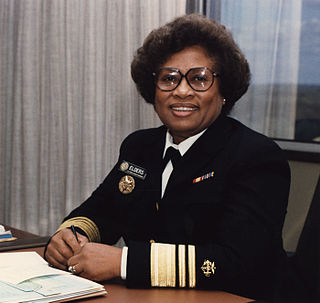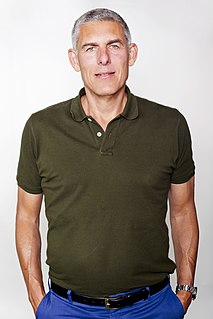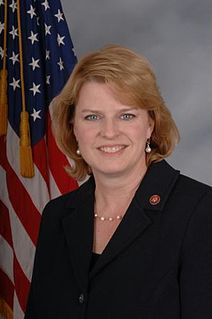A Quote by Desmond Tutu
Only if we face up to our past can we regain our credibility. If we pretend that our trust is greater than it is, we will be like someone who tries to patch over a crack.
Related Quotes
The draconian spirit that seeks to enhance penalties and to lower the age at which juveniles will be tries as adults, is part of the 'whole cloth' of three strikes. Our failure to address the depair of our inner-city youth is only delayed by our over-confidence in a stance that is 'tougher than thou.'
We enter into solitude first of all to meet our Lord and to be with him and him alone. Only in the context of grace can we face our sin; only in the place of healing do we dare to show our wounds; only with a singleminded attention to Christ can we give up our clinging fears and face our own true nature.
Digging back through the events of the past, I found that there have been all sorts of people who had a greater effect on us than our own fathers. Perhaps an adult that we wanted to become like, or someone with such a strong presence that even now, they remain in our hearts - someone who might be referred to as a "father of choice."
I don't know how anybody can say that who looks at what's happening to our young people and what's happening to our country, all because of guns. The NRA is putting themselves in a position where people will no longer trust them. They've been trusted in the past, but now their credibility is on the line.
It is possible to be honest every day. It is possible to live so that others can trust us-can trust our words, our motives, and our actions. Our examples are vital to those who sit at our feet as well as those who watch from a distance. Our own constant self-improvement will become as a polar star to those within our individual spheres of influence. They will remember longer what they saw in us than what they heard from us. Our attitude, our point of view, can make a tremendous difference.
By speaking of greater forces than we can possibly invoke, and by confronting us with greater spans of time than we can possibly envisage, mountains refute our excessive trust in the man-made. They pose profound questions about our durability and the importance of our schemes. They induce, I suppose, a modesty in us.
Another misconception is that if we truly loved someone, we will never finish with our grief, as if continued sorrow is a testimonial to our love. But true love does not need grief to support its truth. Love can last in a healthy and meaningful way, once our grief is dispelled. We can honor our dead more by the quality of our continued living than by our constantly remembering the past.
We feel that to reveal embarrassing or private things, we have given someone something, that, like a primitive person fearing that a photographer will steal his soul, we identify our secrets, our past and their blotches, with our identity, that revealing our habits or losses or deeds somehow makes one less of oneself.
It is not true that the legislator has absolute power over our persons and property, since they pre-exist, and his work is only to secure them from injury. It is not true that the mission of the law is to regulate our consciences, our ideas, our will, our education, our sentiments, our works, our exchanges, our gifts, our enjoyments. Its mission is to prevent the rights of one from interfering with those of another, in any one of these things.
Here I had tried a straightforward extrapolation of technology, and found myself precipitated over an abyss. It's a problem we face every time we consider the creation of intelligences greater than our own. When this happens, human history will have reached a kind of singularity - a place where extrapolation breaks down and new models must be applied - and the world will pass beyond our understanding.









































